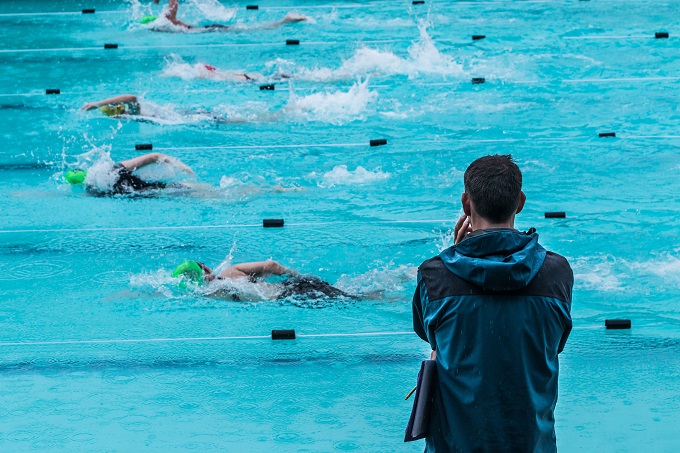
AdobeStock by kudosstudio
<h2>Did you know that swimming is the most popular recreational activity for males and females aged 16 to 24 years old? Well, it is according to the Ministry of Health.</h2>
<p><strong><a href="https://issuu.com/multimediaau/docs/snnz45-term-2-2019" target="_blank">This article originally appeared in our Term 2 issue, which you can find online here. </a></strong></p>
<p>As we try to get young Kiwis engaged in physical activity, it seems that swimming could be a terrific option as getting children comfortable in water could kickstart a lifelong source of enjoyment. Not to mention the number of water sports and other pool activities that schools can take part in. There’s one thing that stands in the way of all this though, and that’s access to a heated pool. While 60 percent of schools have pools in New Zealand, not all of them are heated. Temperature control allows water sports training, swimming lessons and extra-curricular pool activities to continue year-round.</p>
<p>While the Ministry of Education notes that for some schools, heating a pool can be high-energy use, pool covers and efficient maintenance can prove effective. “Insulating indoor pool buildings can also help to maintain water temperatures,” notes the MoE.</p>
<p><strong><u>An industry expert’s take on the matter:</u></strong></p>
<p><em>Heat Pump Pool Solutions director David Smalley, discussed the need for pool heating with School News. </em></p>
<p>An un-heated pool poses several problems for a school, the first of which is that it cannot be used during cooler weeks of the swimming season. With an inconsistent water temperature, student enjoyment and engagement in water activities, lessons and sports will lessen considerably and teachers may notice that an unheated pool hampers students’ ability to concentrate. This could be detrimental if the students are trying to learn important “swim safe” skills.</p>
<p>Conversely, a pool heated to a consistent and comfortable temperature allows children to learn more comfortably and effectively. They will be able to concentrate on the lesson, as opposed to feeling cold and wanting to get out of the pool. Consistently warm water will also increase in the time that your pool can be open and used during the school year. Finally, a heated pool also has the potential to significantly increase take up of pool keys from the surrounding community. This additional revenue can offset the monthly running costs.</p>
<p>Traditionally, a solar pool heating system’s initial start-up cost may be quite high. Being highly dependent on ideal weather conditions means it cannot be a reliable pool heating system. A ‘free’ running cost, solar pool heating system, usually requires a new circulation pump to get the water up to the roof and back. Because the new pump uses electricity, there has to be a monthly cost associated with it. It is strongly recommended that a thermal blanket or solar bubble pool cover also be installed. To assist in taking the cover on and off the pool, it will be fitted to a stainless steel cover stand with aluminium tube. A pool cover significantly helps in reducing the monthly running costs associated with the heating of the pool. It does this by reducing the cooling effects of evaporation during the day, and minimising heat loss at night when the ambient air temperature drops. By using the free energy of the sun, the bubble cover will aid in the actual warming of the pool as well.</p>
<p>Heat exchange pool heaters use a combination of solar energy and electricity to heat a swimming pool effectively and efficiently. The unit itself is powered by electricity and transfers heat from the surrounding atmosphere into the pool’s water. More specifically, the unit takes the heat from the air, upgrades it with a compressor and then transfers it into the water. By converting the warmth of the air into energy through the refrigeration process, they provide a reliable, environmentally friendly, and cost effective pool heating option. They typically convert one unit of input energy into four or five units of output energy.</p>
<p> Other forms of pool heating such as gas or diesel pool heaters can be extremely expensive running cost wise &#8211; up to four to six times the cost of heat pumps. They also have a significantly shorter life span of three to five years. A well-maintained heat pump should last at least 10 years.</p>

EXCLUSIVE: Teachers used to be paid two to three times more than minimum wage workers,…
After an “overwhelming” vote to reject the latest Government offer, secondary school teachers will begin…
Second-language learning should be compulsory, says a new report from a forum bringing together academics,…
A new entitlement aimed to improve access to learning support coordinators for schools with students…
Educators have raised questions about the Ministry of Education’s new secondary school subjects, set to…
Professional learning and development (PLD) for teachers needs to be higher impact for teachers and…
This website uses cookies.